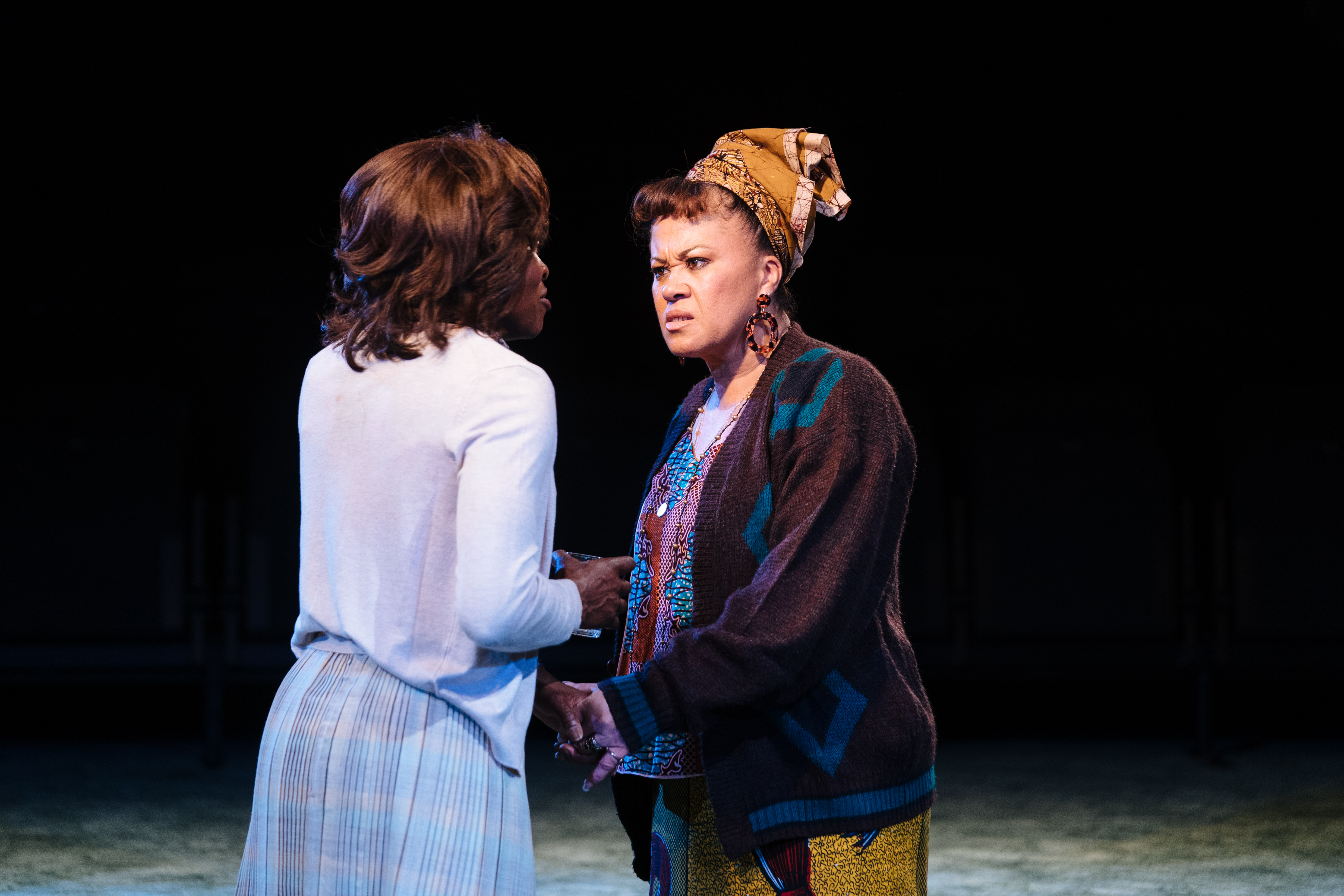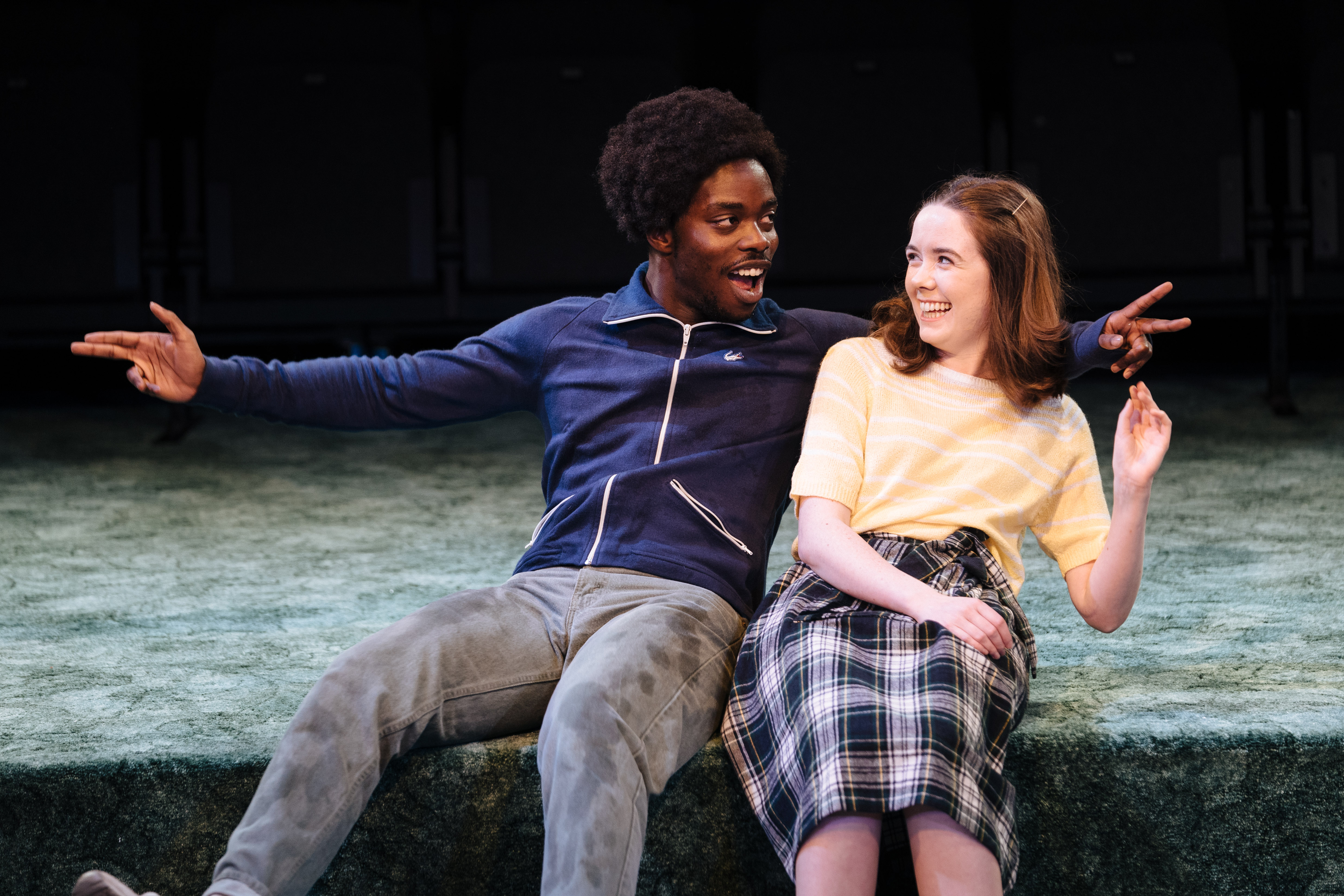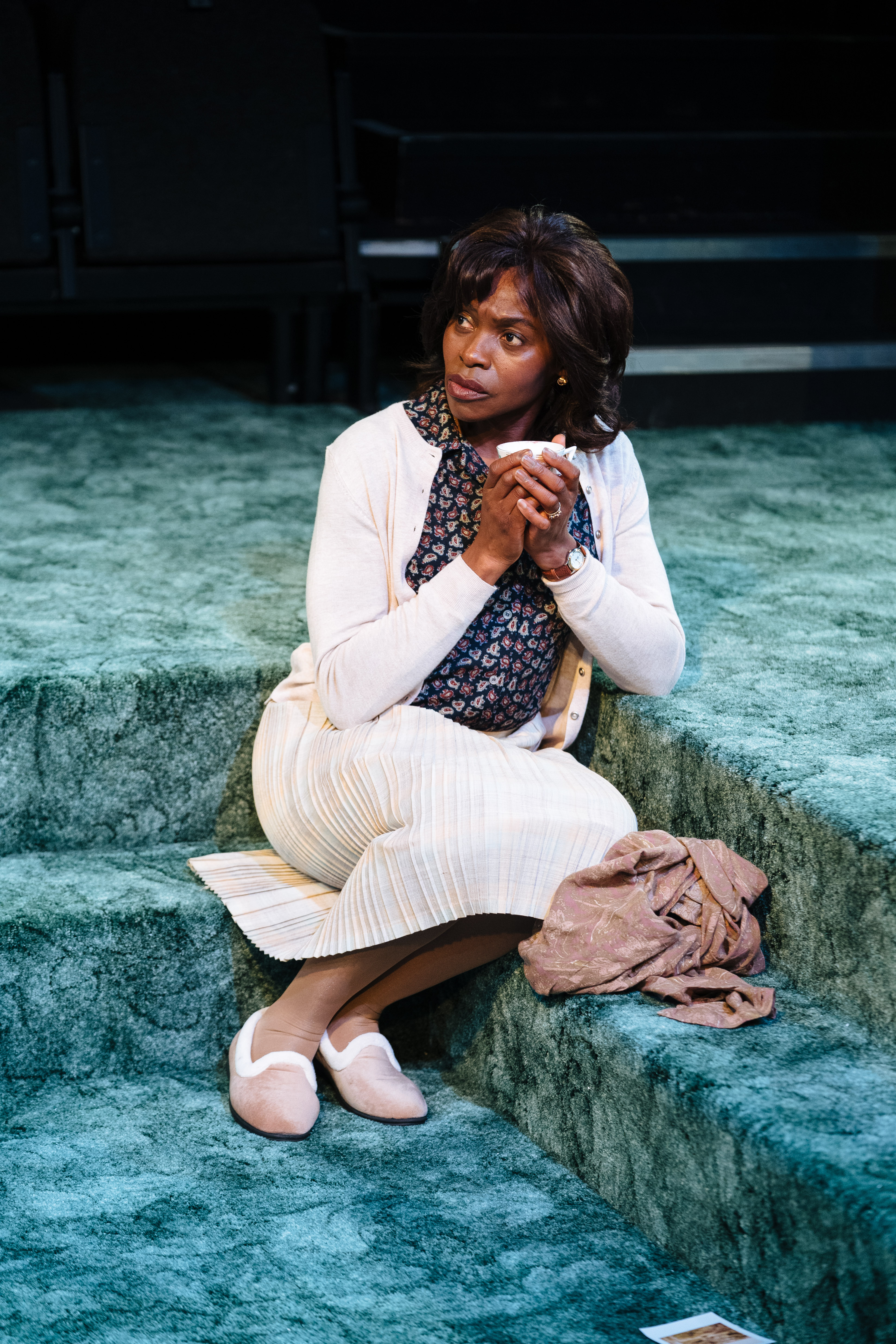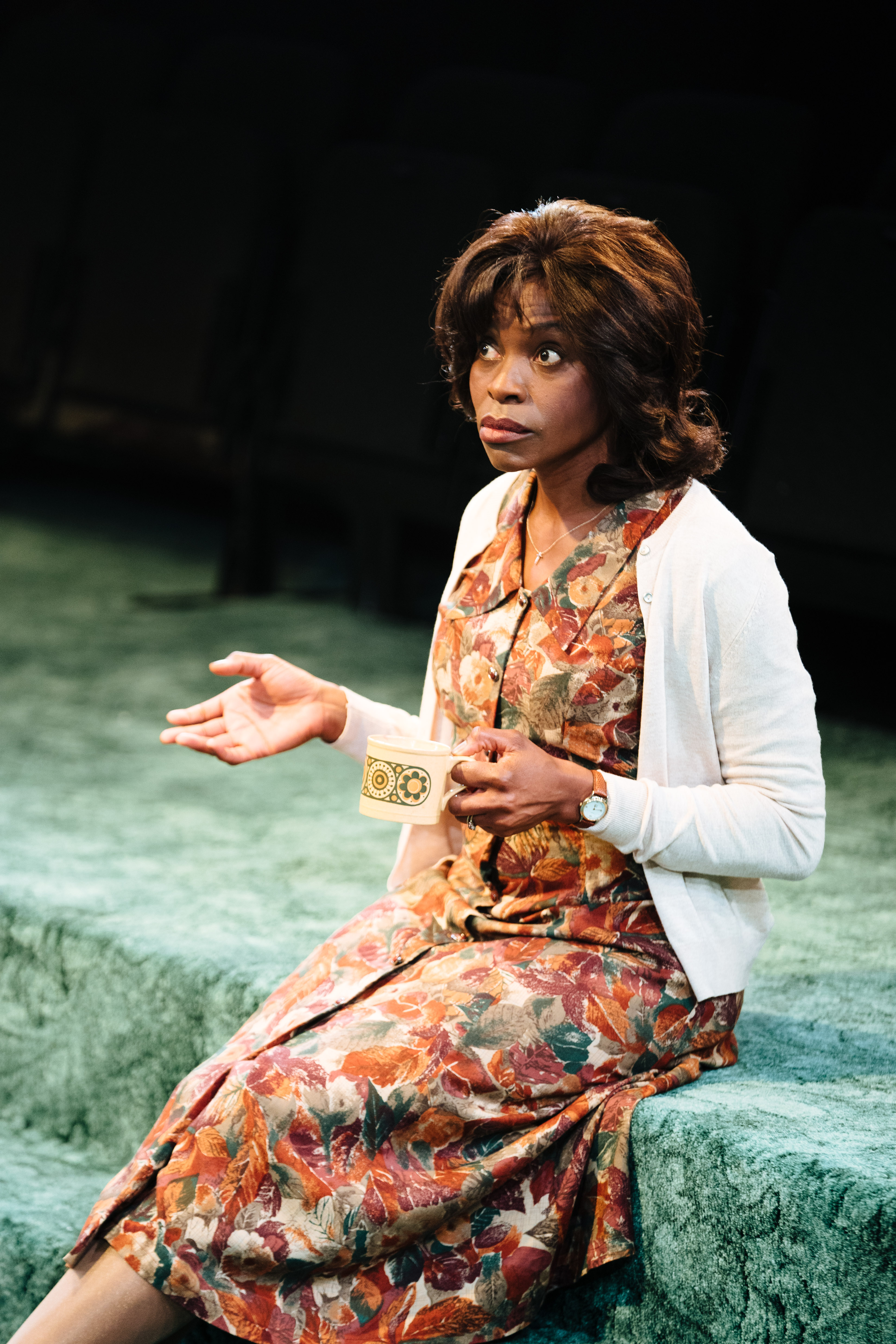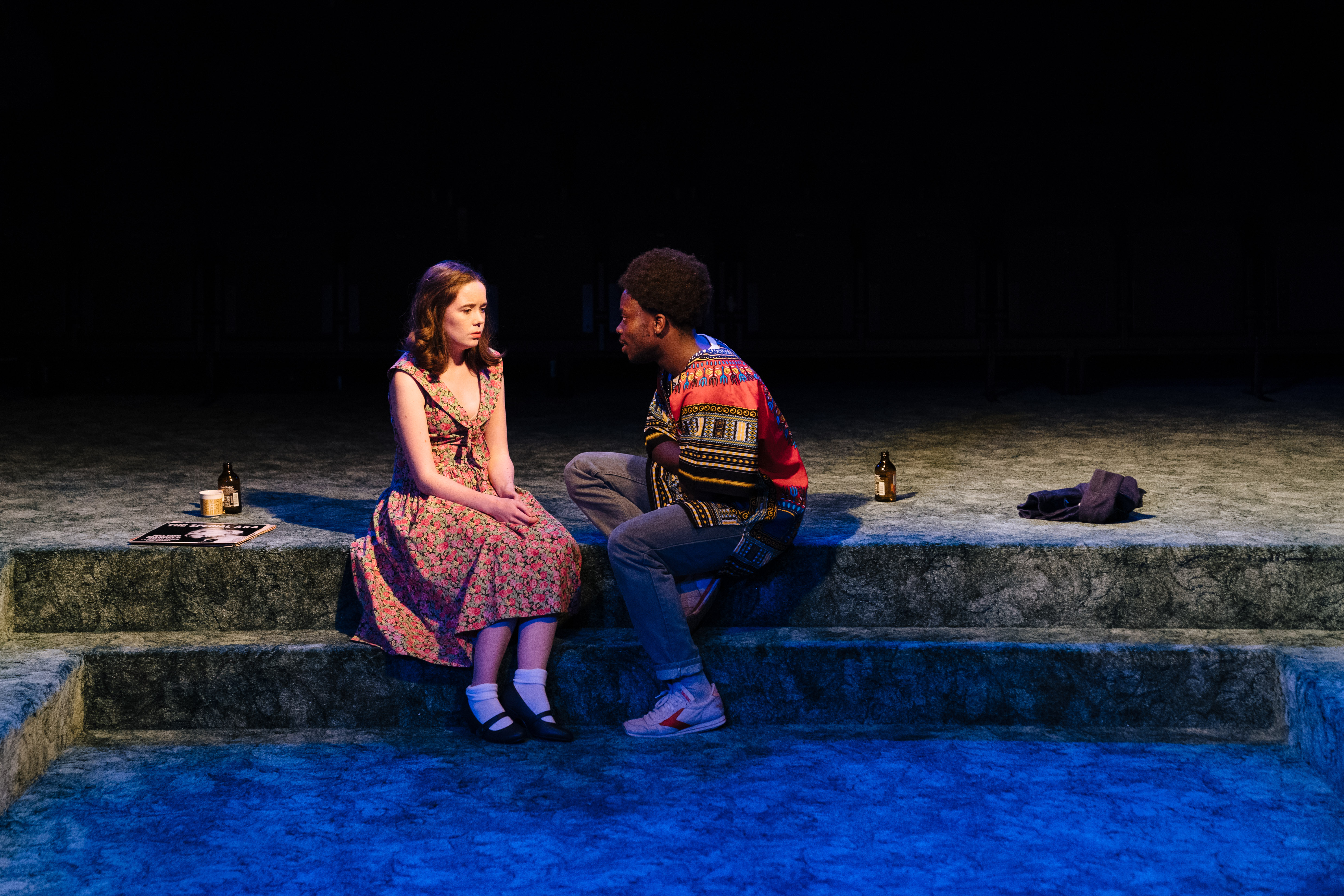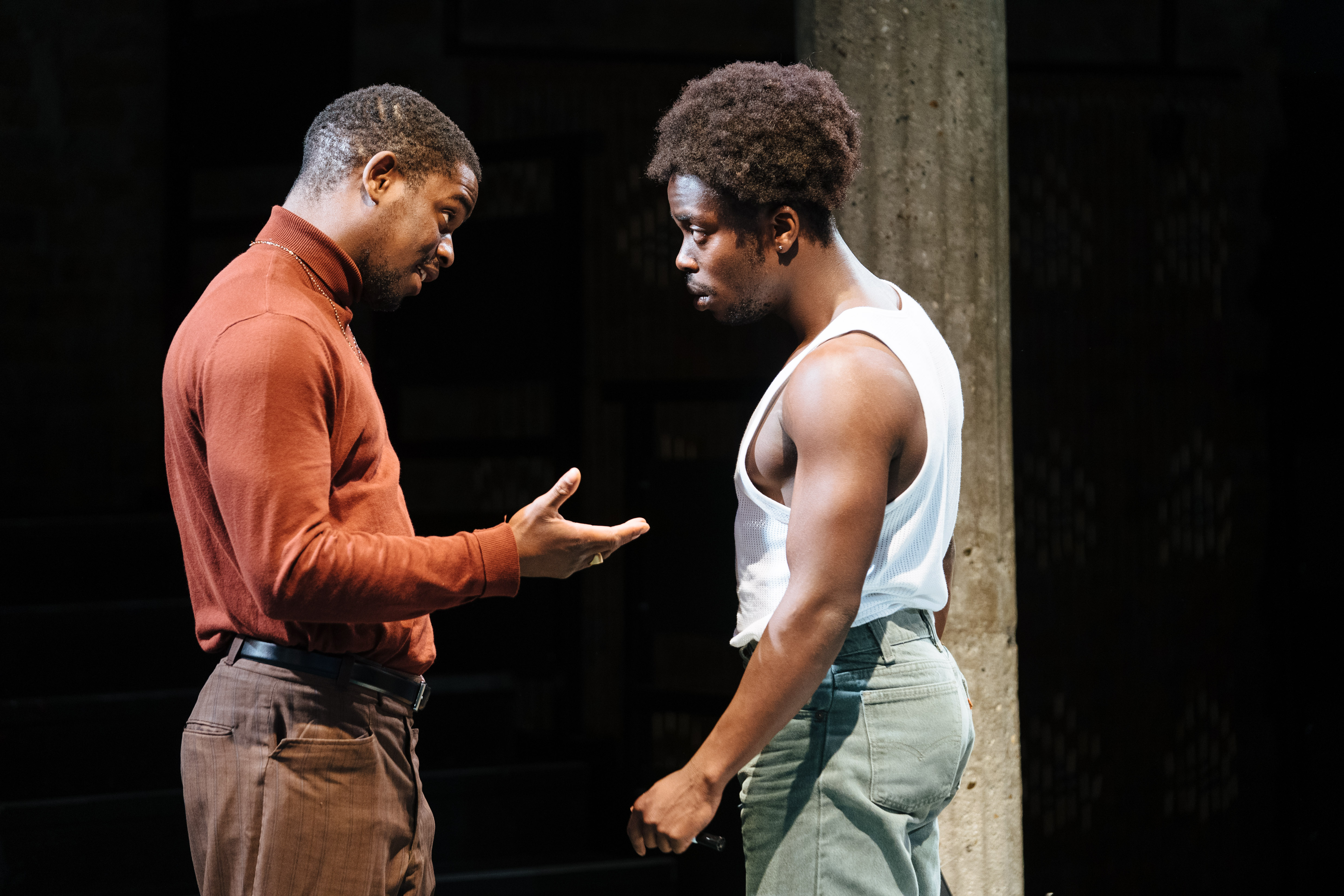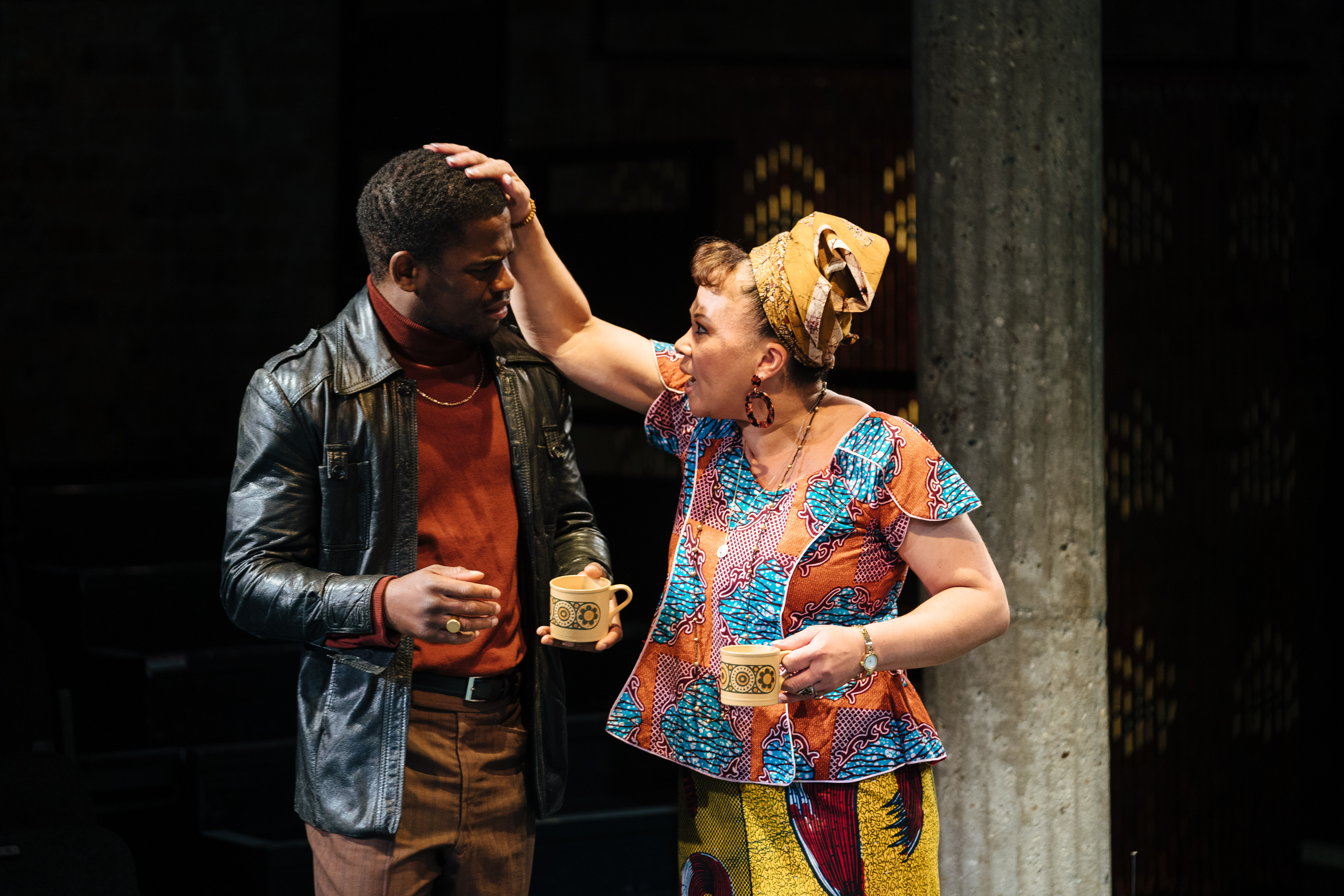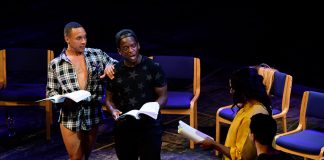There is a lot of talking in this play, but the central theme seems to be the legacy felt from the family unit’s’ non-communication.
The family in question is barely functional, Anglo-Caribbean, residing in 80s Britain – a product of late-era Windrush immigration from the ‘West Indies’ to England.
The backdrop to the play is an 80s English city (probably London): a semi-dystopian socio-political and cultural battleground, rife with racism (from citizens and police alike), riots, union strikes, and football hooliganism.
The family consists of mother Vivienne and brothers Errol and Alvin, and is augmented by neighbor Vernice, and Errol’s girlfriend Shelley.
Shelley is the only White character.
This is a powerful play, brilliantly performed, designed and delivered, and well worth seeing
Growing up in an environment where being called ‘sambo’, ‘n****r’, ‘coon’, etc. in public was an expected norm – and where racial violence (often by the police) was an everyday threat – the two brothers struggled for both connection (each-other notwithstanding) and direction.
Having been brought up almost solely by their emotionally distant schoolteacher mother, they deemed it necessary to romanticize their deceased father (former West Indies cricketer); a man they don’t remember, will never physically meet with, and of whom – thanks to their mother’s caginess on this, and many other subjects – they know little.
One way they choose to take back control – of their cultural identities, at least – is by researching and adopting unapologetically ‘pro-black’ initiatives; including revolutionary strategies, community outreach programmes, and intellectual writings referencing pan-Africanism, black Muslims, Black Panthers and – following Marcus Garvey’s example – voluntary repatriation, either ‘back home’, or back to Africa.
Based on the increasingly erratic Errol’s outpourings, the brother’s shared belief system not only prioritises ‘all things black’, African and/or Caribbean, it actively demonizes the ‘Babylonian’ white power structure, and the white citizens that benefit from it.
What makes these views more than a little ironic in Errol’s case, is that, for the previous two years, he’s been ‘dating’ Shelley (Tilly Steele), a naïve, ill-educated, working-class white schoolgirl; one who dotes on him.
Errol, of course, treats her appallingly: using her as an intellectual punching bag, a low-maintenance sex-doll, and as a receptacle for much of his anti-white bile, to him, she seems both a convenient scapegoat, and a real way to (egain a measure of control over – and revenge against – the white patriarchy.
The couple’s abusive dynamic is a painful but compelling watch; made even more so by a moving and nuanced performance by Miss Steele. Her character appears, at once, child-like and world-weary as she essays hope, despair, wide-eyed ignorance, desperation and – finally – near-catatonic surrender.
It’s a stunning portrayal of a young girl from a damaged background with little self-esteem or imagination; one who’s only option is to constantly sublimate and debase herself for… well, just about any scrap of hope she can get.
There is a painfully awkward sex scene between the pair; a darkly honest depiction of the kind of damaging, impersonal sex that only two deeply damaged individuals can share.
Errol (vividly brought to life by Jonathan Ajayi) clearly has undiagnosed mental-health issues. His constant aggression and micro-aggressions, brutal cynicism, intellectual bullying, and an extreme oppositional approach in almost all conversations, are a reminder that countless generations of black males afflicted with mental health concerns remain unseen and unheard.
As his brother Alvin (an intelligent, controlled performance by Tok Stephens) is away on a two-week trip ‘back home’, ostensibly to represent their mother at her recently deceased father’s funeral, it is Errol (of the two) with whom we get to spend quality time, in Act one.
As a result, it is through Errol’s pan-Africanist posturing and regular diatribes that our picture of the unseen Alvin is formed. However, as we witness in the 2nd Act, the newly arrived Alvin is quite capable of speaking – and thinking – for himself.
In fact, because of having his perspective irrevocably altered by various experiences while on the trip – Alvin is forced to ‘tear their sibling playhouse down’. Having been confronted by certain harsh realities in the Caribbean, Alvin actively starts to deconstruct these myths, to confront and debunk false narratives, while simultaneously eschewing simplistic cultural solutions to complex issues (i.e. ‘let’s all leave Babylon and move to Africa). However, by so doing, Alvin risks placing a permanent wedge between himself and his staunchly radical – and evidence-resistant – younger brother, Errol.
Ultimately, the shared and fabricated realities, to which they both learn to cling so tightly, come as a direct consequence of the safe, disjointed, disconnected and fragmented upbringing that their mother gave them.
This brings me to Rakie Ayola’s incredible portrayal of the matriarch Vivien. While Debra Michaels delivers an entertaining and funny performance as ballsy neighbour Verniece, it is Rakie Ayola’s performance that is truly connected to the mains. Her physicality is suspended, uncomfortable – fractured – fragmented; she fidgets and frets; she appears to be permanently distracted by unseen people, places and or things. It’s as if she’s so haunted by the past – and so fearful of the future – that she barely exists in the present.
She disguises her fear and self-loathing by, firstly, assimilating to her new ‘home’ as best she can, and then by ‘alchemising’ her innate fierceness. Alas, her disguise is too exacting – too distracting; she has contorted and manipulated herself into a contrived study of polite awkwardness. This carefully constructed disconnection – presumably designed to help flee, fight, find and keep work, to enable her and her two young sons to survive in England – has proved so effective that her two sons fail to ‘recognize’ her (or, more pertinently, themselves). Ultimately, they feel they have little choice but to abandon any hope of an honest relationship; choosing, rather, to look thousands of miles away, to an unmarked grave inhabited by an unknown ex-cricketer, for their ancestral connection to their own ‘Blackness’ – rather than to her, their own mother.
Rakie Ayola’s incredible portrayal of the matriarch – a performance so dripping with emotional honesty that it became uncomfortable to watch
And it’s all there in Rakia Ayola’s vital performance – the haunted eyes; the strangled voice; the shaking hands. Near the end of the first act, she delivers a spellbinding monologue about just one of the racist incidents she survived on her path to provide for herself and her kids. It’s a performance so dripping with emotional honesty that it became uncomfortable to watch (or perhaps it was the tears). However, this mighty monologue isn’t delivered to either of her sons, but to her neighbour (and best friend), Verniece. As a result, she – the mother – remains unknowable – unknown – remote – even (especially) to those closest to her.
This is the great tragedy that Caryl Phillips’ wonderful play examines: far too many of our departed ancestors and/or living relatives felt the need to hide, disguise, minimise and implausibly deny those facts and aspects of themselves not deemed helpful in the latest ‘assimilation fabrication’. In this drive to contrive, they (we) voluntarily – and often with great prejudice and community collusion – have laid waste to whole forests of ‘family trees’, oftentimes leaving fledgling ‘fruits’, strangely un-gathered; open to the elements, rotting on the vines…waiting to fall – on unfamiliar ground – unwanted, rootless. This play reminds us how the silence of one generation begets the festering violence of the next. Director Nancy Medina commands proceedings with skill and a respect for both the script, and the energy of the piece. The transitions between scenes are superbly well judged, and Sally Ferguson’s lighting design and Xana’s sound design work beautifully together.
Max John’s Design is intriguing: the ‘in the round’ performance space is carpeted blue, in the middle of which is a large, square ‘sunken place’. A small assortment of practical, domestic props are scattered in various assigned areas, and the three performance exits are dressed with beaded curtains; otherwise, the performance space is free, uncluttered, and open for alchemy.
This is a powerful play, brilliantly performed, designed and delivered, and well worth seeing. So, go see and please take an elder or two. Who knows – it might lead to an important, ‘historic’ conversation.























